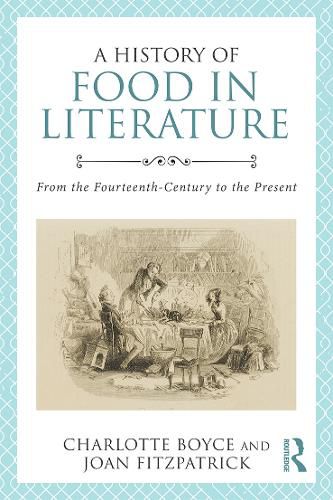Readings Newsletter
Become a Readings Member to make your shopping experience even easier.
Sign in or sign up for free!
You’re not far away from qualifying for FREE standard shipping within Australia
You’ve qualified for FREE standard shipping within Australia
The cart is loading…






When novels, plays and poems refer to food, they are often doing much more than we might think. Recent critical thinking suggests that depictions of food in literary works can help to explain the complex relationship between the body, subjectivity and social structures. A History of Food in Literature provides a clear and comprehensive overview of significant episodes of food and its consumption in major canonical literary works from the medieval period to the twenty-first century. This volume contextualises these works with reference to pertinent historical and cultural materials such as cookery books, diaries and guides to good health, in order to engage with the critical debate on food and literature and how ideas of food have developed over the centuries.
Organised chronologically and examining certain key writers from every period, including Chaucer, Shakespeare, Austen and Dickens, this book’s enlightening critical analysis makes it relevant for anyone interested in the study of food and literature.
$9.00 standard shipping within Australia
FREE standard shipping within Australia for orders over $100.00
Express & International shipping calculated at checkout
When novels, plays and poems refer to food, they are often doing much more than we might think. Recent critical thinking suggests that depictions of food in literary works can help to explain the complex relationship between the body, subjectivity and social structures. A History of Food in Literature provides a clear and comprehensive overview of significant episodes of food and its consumption in major canonical literary works from the medieval period to the twenty-first century. This volume contextualises these works with reference to pertinent historical and cultural materials such as cookery books, diaries and guides to good health, in order to engage with the critical debate on food and literature and how ideas of food have developed over the centuries.
Organised chronologically and examining certain key writers from every period, including Chaucer, Shakespeare, Austen and Dickens, this book’s enlightening critical analysis makes it relevant for anyone interested in the study of food and literature.